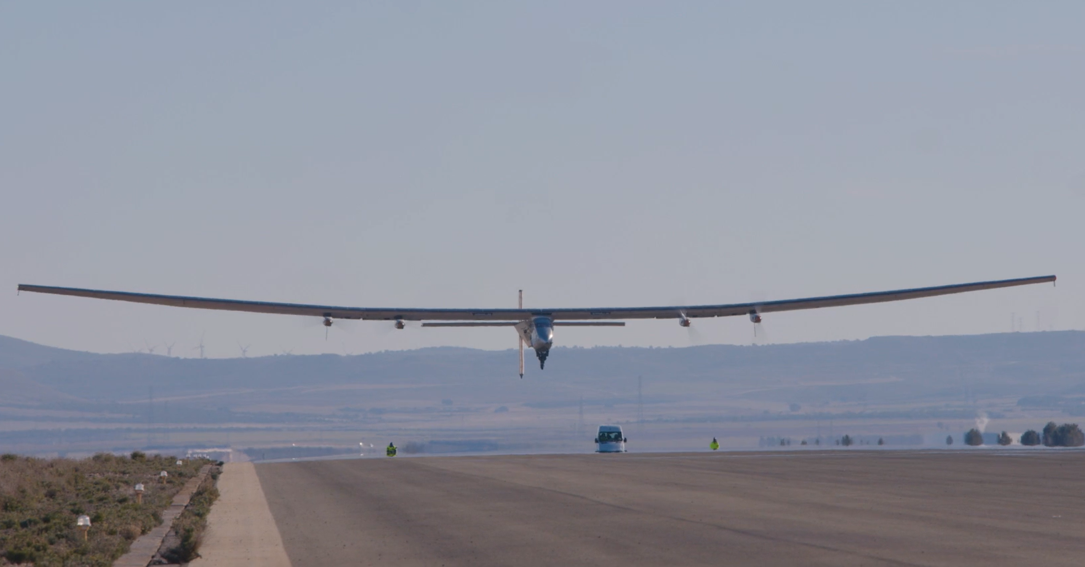
Skydweller takes off on its first autonomous flight from Albacete airbase in Spain.
Skydweller Aero has conducted the first fully autonomous flights of its solar-powered, heavy-payload, long-endurance uncrewed aircraft after equipping the former Solar Impulse 2 with an internally developed fly-by-wire flight control system.
U.S.-Spanish startup Skydweller acquired the Solar Impulse 2 in 2019 after the aircraft had completed the piloted circumnavigation of the world on solar power. Initially it was converted to an optionally piloted aircraft by connecting flight-control computers to the existing mechanical controls.
In flight tests from Albacete airbase in Spain, the aircraft demonstrated remotely piloted, three-dimensional guidance from the ground. But to exploit the aircraft’s months-long endurance capability required development of a full-authority, fully redundant autonomous flight control system, Skydweller CEO Robert Miller says.
Upgraded with the human-rated fly-by-wire system, the aircraft was awarded an experimental airworthiness certificate by Spanish aviation regulator AESA. In the initial validation flight tests, the system flew the aircraft autonomously from takeoff to landing without pilot input, although there was a safety pilot on board.
“We now have an aircraft that can be operated in three modes: with a pilot on board, using the redundant autonomous flight control system, and by remote pilot for the ground, which is primarily for testing,” Miller says. After further software qualification and envelope expansion, Skydweller plans to remove the pilot.
“At this mature phase, Skydweller is prepared to demonstrate the aircraft’s operational utility, given the proven history of the airframe and its successful transformation from a piloted aircraft into an autonomous platform,” Miller says.
Skydweller is under contract with the U.S. Navy, Southern Command and Africa Command to fly the aircraft from the U.S. over the Caribbean under a Joint Concept Technology Demonstration (JCTD). “We are evaluating locations in the U.S. for flight testing,” he says.
The aircraft is planned to be flown on security missions over the Dutch islands of Aruba, Bonaire and Curacao as well as the French islands of Guadeloupe and Martinique. The startup also has memoranda of understanding with the French and Luxembourg governments.
Luxembourg is supporting the JCTD and a Cargolux freighter will transport the aircraft to the U.S. for the flight tests. “The Caribbean is a good place to do demonstrations,” Miller says. “There is a need there and the bases are all close if we need to divert.”
Skydweller will make some changes to improve the performance of the production aircraft, which it plans to have operational by 2024. These include material changes to reduce weight and new solar cells to increase power and endurance.
The performance of solar-power aircraft depends on latitude and time of year. Skydweller’s goal is to be able to operate 365 days a year from Miami in the north to Rio de Janiero in the south, Miller says.
